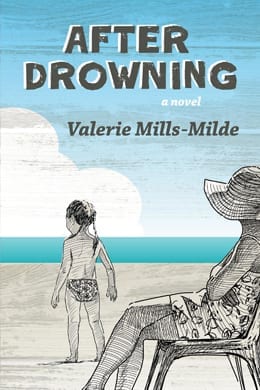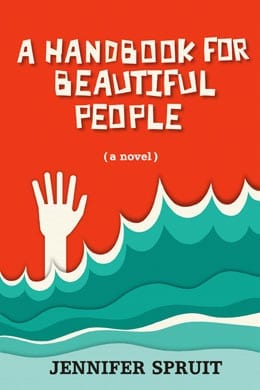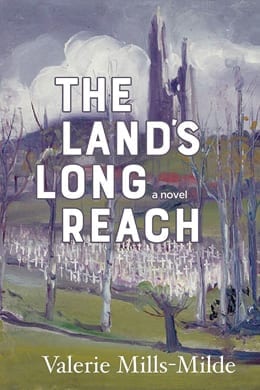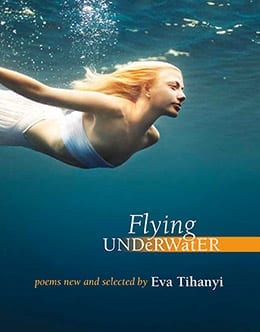Winner, 2017 IPPY Silver Medal for
Contemporary Fiction
Lake Erie was once home to a thriving inland fishery but the sad fortunes of the lake have decimated the industry, forcing those who live along the Lake Erie shore to adapt their expectations, or move on. On a summer’s day, Pen (Penelope) Beau and her four-year-old daughter Maddy are at the beach when they witness a drowning. The tragedy dredges up memories from Pen’s childhood – the death of her father in a boating mishap that may or may not have been an accident, and the subsequent disappearance of her brother Keaton, who fled the town after setting a deadly fire. Also involved in the events on the beach that day is Tom, a member of a biker gang, who is being inexorably drawn into a club-sanctioned bloody showdown. Eventually betrayed and abandoned, Tom must re-think the true nature of his relationships. Pen and Tom’s lives briefly intersect, two outsiders who must each find a way to reconcile the scattered threads of their lives.
“After Drowning is a beautifully written and powerfully moving novel about a young mother’s journey of finding an anchor for her heart in the permanence of change. Valerie Mills-Milde vividly paints microscopic but telling details of complex emotions, thoughts, and descriptions with a deft use of imagery and metaphor. This book nimbly travels through relationships, grief, abandonment, trust, and hope all against the backdrop of a lake that has seeped into the souls of the main characters. This is a book to be felt, savoured, and loved.”
—Sky Curtis, author of Doctored, A Gut Reaction and the forthcoming, Flush
“In her debut novel, After Drowning, Valerie Mills-Milde has mined new territory in a Canadian setting we know little about with a cast of characters that will stay with the reader long after finishing the book, not the least of which is Lake Erie — a beautiful lake that used to provide bounty in the form of fish but can turn on a dime into a menacing adversary with a capacity to kill. Pen and her daughter, Maddie, have returned to Port to stay with her mother and stepfather while Pen sorts out the problems with her marriage. While playing on the beach with her daughter, Pen witnesses a drowning, which triggers memories that set her on a course of self-examination and, ultimately, of release from the constraints and insecurity she has felt all her life. What we learn about the past from Pen’s memories and her internal life is inexorably linked with events that roll out to a surprising and satisfying climax. Love and relationships may fail us in life, but without them we are set adrift, as this author so beautifully demonstrates.”
—Renate Krakauer, author of Only by Blood








inannaadmin –
After Drowning by Valerie Mills-Milde
reviewed by Amy Andersen
Scene Magazine – August 2017
http://www.scenemagazine.com/uploads/2/4/1/8/24189503/web766.pdf
To skim Valerie Mills-Milde’s debut novel After Drowning would be much like trying to run through a body of water. Her writing is velvety and verdant; but rather than heavy, padded descriptions, the author is painting in oils for the mind’s eye. Penelope Beau is our compass needle, one of several points of view offered up. She has returned to Lake Erie for a summer visit with her family and perhaps an expected reprieve from home life. With Pen is her young daughter Maddie, described with extraordinary vividness. Mills-Milde captures the almost physical sensation of the four-year-old’s buoyancy and her mom’s curiosity, watching this little girl from the outside. Maddie is able to pierce the shield of adult context, seeing certain elusive truths. The narrators for each character are, in turn, slightly unreliable in a charming way. When Pen witnesses a failed attempt to save a drowning man, there are echoes of her own father’s drowning, and her brother’s disappearance. The would-be saviour is an older man, a biker named T, who infi ltrates the story in unexpected ways. As the diff erent protagonists rise to the surface, it becomes clear that Mills-Milde is writing something substantive, something true about herself. The tendrils of the past cling to us all in the form of untold or forgotten stories, tender spots and mysteries suspended in time. After Drowning conveys that rare sense of place and time, a true anchoring. Yet it’s like entering a dream: lucid and complete, content to watch events play out through scenes of intensity, or just taking in the sound of the waves.
————–
After Drowning by Valerie Mills-Milde
reviewed by Renate Krakauer
Canadian Woman Studies / les cahiers de la femme 31.1,2 (Fall/Winter 2016)
In her debut novel, After the Drowing, Valerie Mills-Milde, has mined new territory in a Canadian setting we know little about with a cast of characters that will stay with the reader long after finishing the book. We learn about the formerly thriving fishing industry on Lake Erie, now virtually wiped out by zebra mussels, and the impact on the lake and its surrounding villages through the story of one family. Pen and her daughter, Maddie, have returned to Port to stay with her mother and stepfather while Pen sorts out the problems with her marriage. While sunning and playing on the beach with her daughter, she witness the drowning of a developmentally challenged young man who is on an outing with a group from his residential treatment centre. This drowning triggers memories, which set Pen on a course of self-examination and ultimately, of release from the constraints and insecurity she has felt all her life.
Pen can trace a marked shift in her life from the day that her adored father drowned on his fishing boat when she was ten. Was it an accident or a suicide? Shortly after that, her older brother, Keaton, also disappeared from her life after a boat he was working on was set on fire. With an alcoholic mother who has taken into her home the man with whom she had been having an affair before her husband’s death, Pen couldn’t wait to escape and escape she did.
Now she is back and has to confront her self-imposed separation from her kind, loving husband Jeff. The death of her father has left a “mark on all of them” but after her brother, Keaton’s, disappearance, it has made her distrust men, including Jeff. She tells Jeff that she doesn’t know “how to be together.” Reuniting with her mother, who is now sober and in a loving relationship with Ed, she can’t let go of her resentment and suspicion that her mother’s changed life is authentic.
Pen begins to change when she sees a local biker detach himself from his gang and dive into the sea, organizing a chain of people to try to rescue the drowning boy. As the character, Tom Valentine, a member of the Bandidos, unfolds through the novel, the reader shares with Pen the realization that even someone who is capable of cold-blooded murder may experience a moment of compassion.
This is one of the novel’s strengths: the sensitive and subtle recognition that people have many sides to them and that sometimes they can change; that they need support to change; and that they have to suffer the consequences of actions and decisions, sometimes not of their own making.
The author depicts with sensitivity the relationship of mothers and children. Pen lacks confidence in her parenting skills because she didn’t get from her mother, Irene, what she needed growing up. Irene, married too young and burdened with children, drowned her misery in alcohol. But Pen’s instincts are good and she is a nurturing mother, recognizing also the bond between Maddie and her father, Jeff, who loves both of them unreservedly. Irene admits that she failed her daughter but years of neglect cannot be forgotten even if the relationship can be mended.
Mills-Milde handles character development with sensitivity and skill. The novel is peopled with unique individuals with inner conflicts, sometimes more inclined to behave well and sometimes not, just as in real life. Her characterization of the child, Maddie, is delightful, with all the behaviours and language that one would expect from a sensitive four-year-old. Her description of Jeff, Maddie’s father, wiping off the little girl’s face, “with so much delicacy and care, as if he might have been taking dust from a butterfly wing” is very moving. This nuanced development of character is reflected in the description of the setting of a depressed, rundown town on a beautiful lake which used to provide bounty in the form of fish but can turn on a dime into a menacing adversary with a capacity to kill.
Finally, the author has an excellent sense of pacing. What we learn about the past from Pen’s memories and her internal life is inexorably linked with events that roll out to a surprising and satisfying climax. Love and relationships may fail us in life but without them we are set adrift as this author so beautifully demonstrates.
————–
Bloody Summer 2016, In My Reading Log
After Drowning reviewed by Buried in Print – July 20, 2016
http://www.buriedinprint.com/?p=16218
There is a massacre in Valerie Mills-Milde’s After Drowning (2016) too, but the novel begins with a single death, which Pen observes while at the beach with her young daughter.
“The drowning has turned over ancient soil, and with it, the bones of Pen’s past. Last night, unable to sleep, she had reimagined the scene over and over.”
Pen has returned to Port in an effort to orient herself, but this disaster strikes soon after her arrival, and larger questions of rescue and struggle, succumbing and surviving come to the surface.
“‘It’s hard to go back to things. Especially if when you saw them last, everything was so messed up.’”
Surrounded by the familiar and the near-familiar, she begins gingerly exploring her roots, but ‘home’ and ‘away’ are slippery states. Parental and sibling relationshps are dislocated, disorienting.
Sometimes changes are dramatic and readily reconizable. (Even then, there is at least a hint of darkness. Marilyn. Patches.)
Port bears substantial similarity to the town of Port Dover in Ontario, which has also seen substantial cultural change in recent years. (The massacre is pulled from Southwestern Ontario news headlines as well.)
“There are probably hundreds of bikers in the province, she reasons, and many in Port. Many all along the Erie shoreline. In recent years, each time a Friday the thirteenth occurs, the bikers converge on the town like a flock of black gulls. No reason to assume that T or the others, had been involved in these killings.”
Valerie Mill-Milde’s narrative is as familiar as her small-town setting: a search for identity and a sense of belonging, against a background of rapidly changing times both personal and political. Including excerpts from some reports (insurance documents and newspaper articles) reminds readers that there are other versions of the truth hovering beyond Pen’s story, and that adds a degree of complexity to the flow between past and present-day events.
The author draws attention to some key moments which crystallize in the glare of summer sun reflected off Lake Erie with a quiet sensibility. Her sense of irony and compassion could propel the narrative of her next work into truly sophisticated storytelling.
————–
After Drowning
reviewed by The Miramichi Reader – July 3, 2016
http://miramichireader.ca/2016/07/after-drowning-review/
This is Valerie Mills-Milde’s debut novel and it is a superb one. Located on the north shore of Lake Erie where there was once a thriving freshwater fishing industry, After Drowning is a semi-psychological and vastly intriguing novel about lives shattered by events past and present in the fictional town of Port, where a vestigial fishing industry still exists in company with gentrified tourist destinations, and of course, the beach.
The Lake, The Lives
Lake Erie, the fourth largest of the five Great Lakes, has had a troubled environmental history due to over-fishing, pollution and zebra mussel invasion. It is against this backdrop that the Beau family struggles to make a living through fishing.
“She [Pen] looks at the lake, pinned down by a heavy layering of cloud. Port is difficult on days like these, the lake’s moods souring life in the town. A septic place to live, and yet people persist.”
After Drowning opens by describing one of the boats (or “tugs” as they are called) is on fire and a man named Andy is pulling bodies out of the fire, one of them being Keaton Beau before collapsing on the docks.
It is some time after this that Keaton’s father Rod takes their tug out on the lake alone with a storm brewing. The tug capsizes and Rod’s body is never recovered. Soon thereafter Keaton mysteriously leaves Port.
Skip ahead a few years and we are with Keaton’s younger sister Pen and her four-year old daughter Maddie enjoying a day at the beach. Maddie loves to collect items she finds on the beach and approaches some bikers sunning themselves and drinking beer. One of them, “T” converses with Maddie before Pen can call her away. Then, there is a commotion down the shore as someone is missing from a group of special care home residents out for a day on the beach. T dives into the water to try to save the drowning man, but arrives too late. Pen gathers up Maddie and returns home while sirens sound in the background.
Later, T is involved in a massacre of bikers at a rented farm-house outside of Port.
It is these incidents that cut through the lives of Pen, Keaton and T as well as others like Andy (who is left scarred from burns he sustained in the rescue), Pen’s mother Irene and to some extent Maddie.
Conclusion
I called this novel semi-psychological because we are taken along with Pen as she tries to sort out her emotions in dealing with a drowned father, a missing brother, a recovered alcoholic mother and her own estranged marriage to Jeff, Maddie’s ever-patient father. The biker massacre affects her as well, for she encountered T several times around Port after the drowning, so she tries to understand how someone who tried to save a life could just as easily take one.
“She sort the images and tries to find some meaning. Maybe she is becoming unstable, the way she was after Maddie was born, although this feels different, less like defeat and more like a pressing desire to know. She is wrung-out, indecisive, preoccupied with her thoughts, her dreams.”
By Chapter 10, about 1/3 of the way through the book, already the author has introduced about 10 characters which may sound like a lot, but they are introduced through the past as well as the present and all in such a way as to not make the narrative appear too ‘busy’. As well, Ms. Mills-Milde’s character development and their physical descriptions are just enough so that we can picture them with our mind’s eye. I really appreciated this since I could easily keep them all straight in my mind, being able to identify with them all as individuals and their own situations. There are no unlikable characters in After Drowning. Even the biker T has a conscience, but orders from above have controlled him for so long he is locked into a lifestyle he would like to escape, but cannot just walk away from.
After Drowning is an intriguing, well-paced and mysteriously captivating story of everyday lives impacted by tragic events and the collateral damage they inflict as well as the long road back to recovery and reconciliation. Certainly one of the best novels I have read this year and I am long-listing it for the 2016 Miramichi Reader “The Very Best” Book Awards.